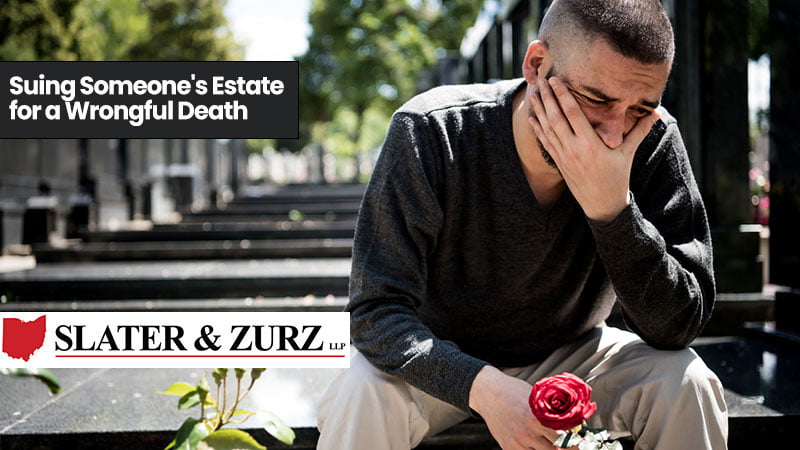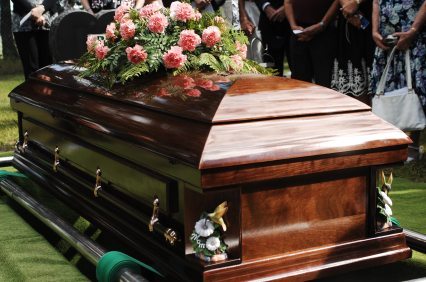A wrongful death claim is a type of legal action you can take to pursue compensation after the death of a loved one. Close relatives like a spouse, child, or parent can file a wrongful death claim if their wrongful death lawyer can prove that another’s negligence resulted in the death.
In some cases, the person responsible for a loved one’s death is also deceased. In this case, your only option for pursuing compensation is to sue their estate directly. This is possible, but it comes with certain limitations. You’ll need an experienced probate lawyer with wrongful death experience if you hope for your lawsuit to succeed.
Suing an Estate Is Possible
It’s not very common to sue an estate for wrongful death. In most cases where relatives have grounds for a wrongful death claim, the responsible person is still living. However, a few situations can necessitate suing an estate.
For example, the person responsible for a loved one’s death might have died simultaneously, like in a car accident. Or they might have coincidentally passed away shortly after causing the death of a loved one. Additionally, you might not discover until later that they were responsible for the death.
Even if some time has passed, it may be possible to pursue compensation if you contact a probate attorney as soon as you discover that the individual was responsible for the death.
Any type of lawsuit is time-sensitive and subject to a state’s statute of limitations. In cases that involve suing an estate, timing is even more crucial. You’ll likely only have a small window of time to take action.
This is because once an individual passes away, their estate typically passes through probate and is disbursed to the heirs. Once this occurs, the contents of an estate are split between the inheritors and can no longer be used to compensate you in a lawsuit.
Time Limits for Suing an Estate
Time limits for taking any type of legal action vary by state. Many states, including Ohio, have a two-year statute of limitation for filing a wrongful death claim.
The one exception to this is called the discovery law. If negligence surrounding the cause of death is only discovered years later, the statute of limitations can be tolled. This essentially means that the time limit allowed (such as two years) can begin at the time of discovery rather than at the time of injury or death.
When a wrongful death claim needs to be taken against an estate rather than a living individual, the window of time is even smaller. Many states, Ohio included, allow only six months to take legal action against an estate.
If you hope to successfully gain compensation over wrongful death by suing an estate, you need to contact a probate attorney immediately. Any delay can cost you your chance of compensation when there’s such a small window of opportunity.
However, time limits alone aren’t the only limitation when it comes to gaining compensation by suing an estate for wrongful death. How an estate is arranged and how strong your negligence case form two central considerations.
Proving Wrongful Death
When someone dies, their estate usually goes through probate. Probate is the legal process of arranging financial affairs after a benefactor’s death. The probate process involves important concerns like paying off any debt and distributing the estate’s contents to the beneficiaries.
If an estate is still within its first six months of the probate process, your probate attorney can file a wrongful death claim against the estate. You’ll need to provide all the proof necessary in a standard wrongful death claim, which includes:
- Documentation of your loved one’s death
- Documentation proving negligence of the estate benefactor
- Proof you are eligible to file for wrongful death
- Proof of the losses you’re seeking compensation for
In a standard wrongful death claim, your wrongful death lawyer will need to prove all of these points. You can’t gain compensation unless you can prove that the other party was responsible for your loved one’s death.
You also need to closely itemize all forms of damages, both economic and non-economic. This includes financial costs, losses, and non-financial forms of harm from the death.
Suing an estate requires each of these standard steps in a wrongful death claim. However, the key difference between suing an individual and suing an estate concerns the availability of the estate fund to compensate you for wrongful death.
Limitations Around Suing an Estate
There’s no one way for the contents of an estate to be arranged. Sometimes, an individual has made little arrangements for what will happen to their assets upon death. However, if the deceased was insured, the coverage from insurance may be available to satisfy a wrongful death claim.
When a benefactor dies without making plans for the contents of their estate, the majority of their estate will be subject to the probate process. This means that their assets, like bank account holdings and real estate, are available to settle their affairs. This includes unpaid debt and compensation for a lawsuit.
In other cases, accessing the finances of an estate may not be as straightforward as it appears to be.
For example, an individual may leave behind a significant estate with ample funds for paying out over a wrongful death lawsuit when they pass. However, if they took estate planning precautions during their lifetime, those assets may not be accessible in the event of a lawsuit.
One common way of protecting assets from the probate process is to establish a living trust. A benefactor can place the bulk of their assets into this living trust, and upon their death, the content automatically passes into the ownership of the designated heir.
In this sort of case, the assets now belong to the beneficiary and cannot be touched in a lawsuit.
Consult A Wrongful Death Lawyer
Suing someone’s estate over wrongful death is a complicated process, and success is highly dependent on the specific circumstances of both a wrongful death case and the arrangement of an estate. However, it’s always worth consulting with a probate lawyer to learn if you have grounds for seeking compensation after losing a loved one. Reach out to the team at Slater & Zurz today to schedule a free consultation with our skilled wrongful death lawyers.






